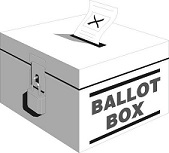Representing Private Interests
- Details
-
Parent Category: Code of Ethics
Prohibited Appearances
No appearances before city agencies. City officials and employees may not represent private interests before any city agency while serving the City or working for it and in the year after they leave the City.
Example: A City Councilmember may not represent a client of his law firm before a city department in a contract dispute between the City and the client, who is a city contractor.
No appearances against the city’s interest. City officials and employees may not represent private interests in actions that conflict with the city’s interests, in litigation where the City is involved, or in proceedings in municipal court where the complainant is the City or a city agency.
Example: A member of the Citizen Review Board may not personally represent police officers in workers compensation claims against the City.
Special rule for City Councilmembers. Councilmembers may not appear before the Zoning Review Board on behalf of constituents or in the performance of their public or civic obligations because matters may be appealed from the board to the City Council.
Special rule for volunteer city officials. Board members may not represent their own business, clients, or other private interests before their own board, the city agency regulated by the board, or the board’s oversight department. In addition, board members may not appear before their own board on behalf of a community group or in the public’s interest.
Example: A member of the Tree Conservation Commission may not file an appeal before the commission challenging an arborist’s decision to permit the removal of trees to enable a city department to construct an underground tunnel.
Appearances Allowed
Appearances in a personal capacity. City officials and employees may appear in their own behalf before a city agency.
Example: A member of the Board of Zoning Adjustment may appeal the denial of a building permit for a fence she seeks to build in her back yard. She is disqualified from participating in the appeal as a member of the board and must file a Conflict of Interest Disclosure Report.
Appearances by City Councilmembers without payment. A member of the City Council may appear before any city agency on behalf of constituents or in the performance of public or civil obligations if the official does not receive any compensation or remuneration for his or her work.
Appearances by board members before the City Council. A city board member may appear before the City Council and its committees in their own behalf and on behalf of their employer regarding proposed city policies and legislation.
Elections
- Details
-
Parent Category: Code of Ethics

Ethics Office's jurisdiction over election issues
The Ethics Office has limited jurisdiction over election-related issues. The Office's primary jurisdiction concerning elections is based on the Code Ethics provision that requires public property to be used for official city business, and prohibits the use of public property for private advantage.
No use of city property
City property generally may not be used by city officials, employees, or candidates to promote their candidacy for office or during political campaigns. However, a candidate may use a city facility during a campaign if the property is a public forum open to all members of the general public, such as the City Hall steps, sidewalks, or public parks. City buildings may also be used for political forums when the forum is open to all candidates in a specific race or where the general public is invited to attend the event.
City officials, employees, and candidates for city elected office:
- Cannot use city funds for political campaign purposes
- Cannot work for political campaigns on the city's time
- Cannot use city equipment, vehicles, or staff to promote their candidacy for elected office
- Cannot use the city's website, email directory, or city email addresses to solicit political support for a candidate
- Cannot use their uniforms, badges, or vehicles in political advertisements or endorsements
City employees who seek elective office
- The Civil Service Code has additional requirements of any city employee who runs for elective office while employed with the City. For questions about the Civil Service Code, employees should talk with their supervisors or consult the Department of Law.
- City employees who run for Mayor, Council President, or City Council in the City of Atlanta must resign from city employment. (See City of Atlanta Municipal Code, Section 114-2 (a)). However, for purposes of Section 114-2 only, publicly elected city officials are not considered city "employees" and are therefore not required to resign from office following an offering to run for Mayor, Council President, or City Council. (See Section 114-2 (g))
- Employees who seek federal, state, and county office or elective office in another municipality must file a written notification with their department head (Section 114-2(c)) and include (1) their intent to file as a candidate for office; (2) the office they intend to seek; (3) the government jurisdiction; (4) the date of filing for candidacy; and (5) the date of the election.
- Employees may request a leave of absence and department heads may require employees to take a leave if the campaign is expected to interfere with the employee's duties or work hours. (See Section 114-2 (b)); see also 114-422 (leave of absence without pay)
- Department heads may require a separation if the employee is elected and the department head determines that the elected office interferes with the employee's duties or hours of city employment. (See Section 114-2 (d))
City board members who seek elective office
City board members, persons appointed by the City to other public boards, and neighborhood planning unit officers or committee members who run for Mayor, Council President, or City Council in the City of Atlanta must resign from their city position on the date of their public announcement or filing as a candidate for office. (Code section 114-2)(g))
NPU meetings cannot be used as political forums
Neighborhood Planning Unit meetings may not be used for political forums or campaigning for city, county, state, or federal elective office.
Campaign Disclosure Reports
The City of Atlanta Municipal Clerk's Office is the filing agency for all local campaign contribution disclosure reports and state-required financial disclosure statements. Candidates for municipal office must file their campaign reports electronically with the Municipal Clerk's Office. To view or obtain more information on local campaign reports, please visit www.gaeasyfile.com or contact the Municipal Clerk's Office directly at 404-330-6500.
Georgia Government Transparency and Campaign Finance Commission.
The Office of Municipal Clerk posted copies of campaign finance reports filed between September and December 2009 by candidates for Mayor, Council President, City Council, and the Atlanta School Board. Under state law, the clerk's office was the official filing office for these reports issued prior to 2011 and is the current filing office as of 2014.




